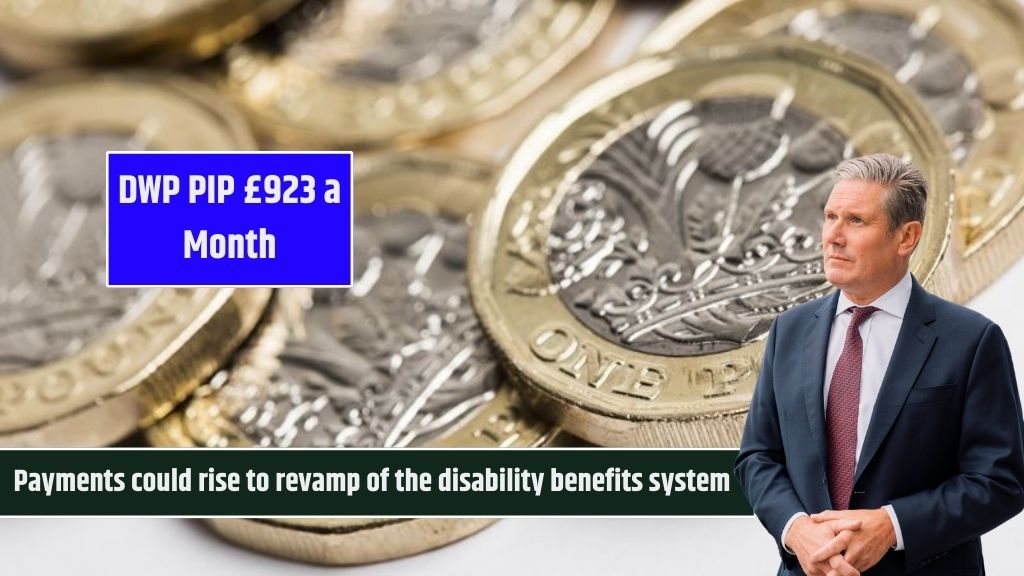Personal Independence Payments (PIP), administered by the Department for Work and Pensions (DWP), could increase to as much as £923 per month under new proposals to overhaul the disability benefits framework. These suggestions come from the Commission on Social Security, an independent panel composed of individuals with direct experience of the UK welfare system, which has put forth a plan to replace PIP with a new system called the Additional Costs Disability Payment.
Under this proposed scheme, the highest weekly payment would reach £230.77, translating to £923.08 every four weeks—a notable jump from the current maximum of £737.20, according to BirminghamLive.
The commission explained: “Our vision is a transformed social security system, crafted with input from those who depend on it and designed to meet their needs effectively—radically different from what exists today.”
Ken Butler, a welfare rights and policy expert at Disability Rights UK, remarked: “This consultation from the commission offers a crucial counterpoint to the DWP’s intentions to reduce benefits for disabled people and those with health conditions. It’s vital that disabled individuals and their advocacy groups engage in this survey to make their perspectives count.”
The suggested replacement for PIP would introduce three payment levels:
- £83.70 weekly (£334.80 every four weeks) for those needing basic support.
- £152.15 weekly (£608.60 every four weeks) for claimants requiring moderate assistance.
- £230.77 weekly (£923.08 every four weeks) for individuals with the greatest needs.
Currently, PIP consists of two elements—daily living and mobility—each offering a standard or enhanced rate. The lowest payment, for standard mobility alone, is £114.80 every four weeks, while the top-tier combination of enhanced daily living and mobility totals £737.20. These amounts are set to rise in April to £116.80 and £749.80, respectively.
The Labour government is anticipated to unveil its own reforms soon, with the Health and Disability Green Paper expected before the Chancellor’s spring statement on March 26. The DWP has signaled that its changes will aim to “overhaul the entire PIP process—from discovering benefits to determining eligibility and delivering payments.”
The department also emphasized a shift toward helping people with disabilities and chronic health issues secure and sustain jobs, aligning with broader efforts to tackle the UK’s unprecedented levels of economic inactivity.
Incapacity benefits might also face changes in this overhaul. Currently, Universal Credit claimants deemed unfit for work after a capability assessment can receive an additional £416 monthly.
| Visit for More News and Updates | WSOA NEWS |
FAQ’s
What changes are proposed for Personal Independence Payments (PIP)?
The Commission on Social Security suggests replacing PIP with an Additional Costs Disability Payment, offering up to £230.77 per week (£923.08 every four weeks), a significant increase from the current maximum of £737.20.
How much could claimants receive under the new PIP replacement?
The proposed tiers are £83.70 weekly (£334.80 every four weeks) for minimal support, £152.15 weekly (£608.60 every four weeks) for moderate assistance, and £230.77 weekly (£923.08 every four weeks) for the greatest needs.
How does the current PIP system work?
PIP currently has two components—daily living and mobility—each with standard and enhanced rates. The minimum is £114.80 every four weeks for standard mobility, and the maximum is £737.20 for both enhanced rates, rising to £116.80 and £749.80 in April.
Why is the government considering changes to PIP?
The DWP aims to revamp PIP to improve the process and focus on helping people with disabilities or health conditions find and keep jobs, addressing high levels of economic inactivity in the UK.
Could other benefits be affected by these reforms?
Yes, incapacity benefits might also change. Universal Credit claimants currently get an extra £416 monthly if assessed as unfit for work, and this could be part of the broader shake-up.















